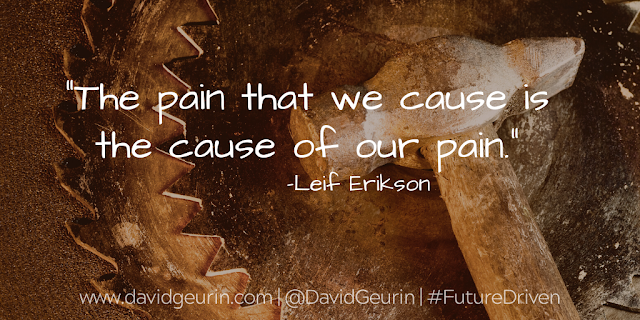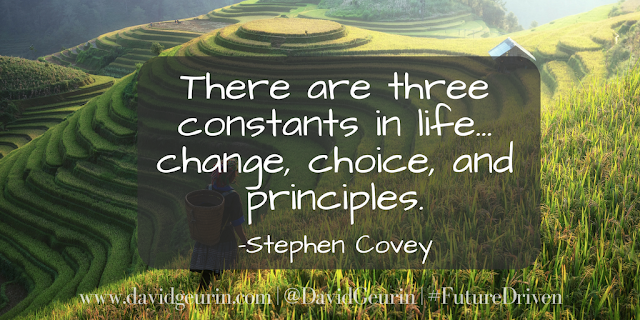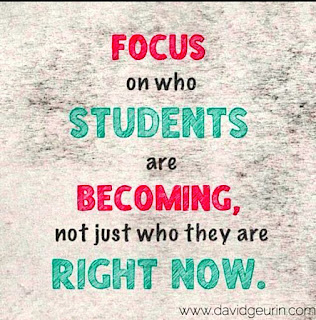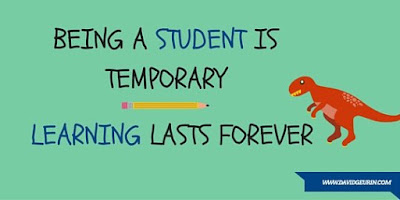Reflection is so important for continued learning and growth. I developed the list below as a tool for educators to reflect on practices that help prepare students for a rapidly changing, complex world. Some of these practices are new. Some are not. Some of them involve technology. Some do not.
These are all based on important themes from my book, Future Driven. These factors help prepare students for a modern world where continuous learning and adaptability are paramount.
I don't think I would expect any educator to be pursuing all of these indicators at once. And this list should never be used to think in terms of judging a good teacher vs. a bad teacher. So don't look at it like that. The purpose of the list is for reflection and growth.
It might give you an idea of where you want to focus your learning for next school year. You could pick one or two and consider how you might develop the practice in your classroom. It might help you consider your next steps in your growth as an educator.
20 Ways to be Future Driven in Your Classroom
1. I provide opportunities for project-based and inquiry-based learning.
2. I give students choices about learning (time, place, path, or pace).
3. I am learning new things about technology and sharing my learning with students and teachers.
4. My students have opportunities to connect with real-world experts.
5. My classroom learning space provides flexibility for student-centered grouping and learning tasks.
6. My students regularly have opportunities to use digital tools to leverage their skills for learning tasks.
7. I utilize Genius Hour or 20 percent time to provide opportunities for students to pursue their passions and interests.
8. I model risk-taking, grit, and perseverance for students and regularly discuss the importance of these characteristics in class.
9. I build strong relationships by greeting students, calling them by name, and getting to know them as individuals.
10. My students assume considerable responsibility for class discussions. Conversations become student-led, instead of teacher-directed.
11. My students take on projects that make a difference in the community or in the world (service-learning).
12. My students have many opportunities to create work that will be visible to authentic audiences.
13. I am intentional about cultivating curiosity in my students by having them develop their own questions, by allowing exploration, or by creating mystery or intrigue.
14. I ask my students for feedback on my teaching and the relevance of my lessons.
15. Empathy is just as important as responsibility in my classroom.
16. I am focused more on what a child can do and not what he/she cannot do.
17. I think about how the future will be different for my students and strive to teach with that in mind.
18. My students have opportunities to experiment with different approaches, rather than just practicing a predetermined method.
19. Character is more important than compliance in my classroom.
20. My students have many chances to take initiative, not just follow directions.
What other practices do you think are important for relevant, future ready learning? I want to hear from you. Leave a comment below or respond on Facebook or Twitter.





















